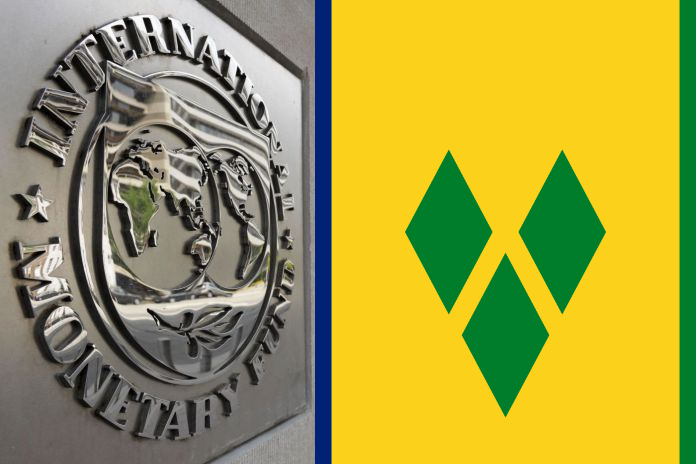USA / St Vincent – On November 14, 2022, the executive board of the International Monetary Fund (IMF) concluded the Article IV consultation with St Vincent and the Grenadines (SVG).
St Vincent and the Grenadines is recovering from the pandemic and 2021 volcanic eruptions. The authorities’ decisive policy responses supported by two IMF Rapid Credit Facility (RCF) disbursements and financing from other International Financial Institutions helped protect lives and livelihoods and contain economic scars. Output decline in 2020 was the lowest in the ECCU and the economy is estimated to have grown by 0.8 percent in 2021 supported by strong post-volcanic eruption reconstruction activity. Nevertheless, the recovery is facing headwinds from inflation pressures reflecting higher import prices. Despite the authorities’ strong efforts to contain fiscal deficits, critical responses to the shocks pushed up public debt to about 89 percent of GDP as of end-2021. The financial system has weathered the shocks relatively well so far with adequate capital and liquidity buffers.
The economy is projected to grow by 5 percent this year, supported by large-scale investment projects and recoveries in tourism and agriculture. Growth is projected to strengthen further in 2023 as large-scale construction projects get into full swing. External inflation pressures are expected to raise the annual inflation to 5.8 percent in 2022. The outlook is subject to significant downside risks, stemming primarily from an abrupt slowdown in trading partners’ growth, potential delays in investment projects including due to supply chain disruptions, and the ever-present threat of frequent natural disasters.
The authorities seek to rebuild fiscal buffers over the medium term and are balancing the need to support the vulnerable, building resilience, and maintaining fiscal prudence. While the primary deficit is estimated to widen as the port construction starts, the primary balance excluding pandemic-, volcano-, and port-related spending is expected to improve from -0.4 percent of GDP in 2021 to 1.6 percent in 2022. They also remain committed to reaching the regional debt ceiling and the medium-term fiscal strategy set out in the 2021 RCF.
Executive board assessment
Executive directors agreed with the thrust of the staff appraisal. They commended the authorities’ proactive responses to the pandemic and volcanic eruptions that reduced economic scarring and contributed to a small positive growth in 2021. They noted that while the outlook is favorable, supported by large-scale investment projects and continued recovery of agriculture and tourism, it is subject to significant downside risks and the economy remains vulnerable to shocks.
Directors agreed that near-term priorities continue to be health and reconstruction spending and supporting the vulnerable, while maintaining fiscal prudence. Directors encouraged the authorities to keep the generalized fiscal relief temporary as announced and continue to enhance the coverage and targeting of the social safety net. As the economy recovers, fiscal policy should move from income support to active labor market policies (ALMP) to facilitate training and employment.
Directors stressed the importance of rebuilding fiscal buffers, including by fully operationalizing the Fiscal Responsibility Framework (FRF), to withstand shocks and reinforce fiscal sustainability. They welcomed the authorities’ continued commitment to reaching the regional debt target and the medium-term fiscal strategy set out in the 2021 Rapid Credit Facility (RCF). They noted that it is important to recalibrate and fully operationalize the FRF to underpin the commitment and signal a credible medium-term fiscal plan. Directors underscored the need for continued complementary fiscal institutional reforms to support the effective implementation of the FRF, and also called for building additional buffers and preparing contingency plans, which will be key to increasing resilience to external shocks.
Directors emphasized the need for continued broad-based structural reforms to support inclusive growth, promote employment, and bolster resilience to natural disasters. They noted that the recent and ongoing key infrastructure projects are instrumental for addressing supply-side constraints to growth and improving structural resilience. Directors welcomed the authorities’ efforts to further improve the business climate, including through the planned new Investment Act, and to invest into human capital by improving the scope, coverage, and effectiveness of technical and vocational education and training (TVET) programs, and considered that the TVET programs should be complemented by ALMP to facilitate employment. Directors also supported the authorities’ efforts to further develop the tourism sector to contribute more to the economy.
Directors noted that the financial sector remains broadly stable. They stressed the need to closely monitor asset quality following the end of the loan moratoria and bolster the provisioning levels. Directors considered that the financial authorities should continue to strengthen the supervisory and regulatory frameworks and improve crisis preparedness. They also welcomed the authorities’ strong efforts to strengthen the AML/CFT framework.





